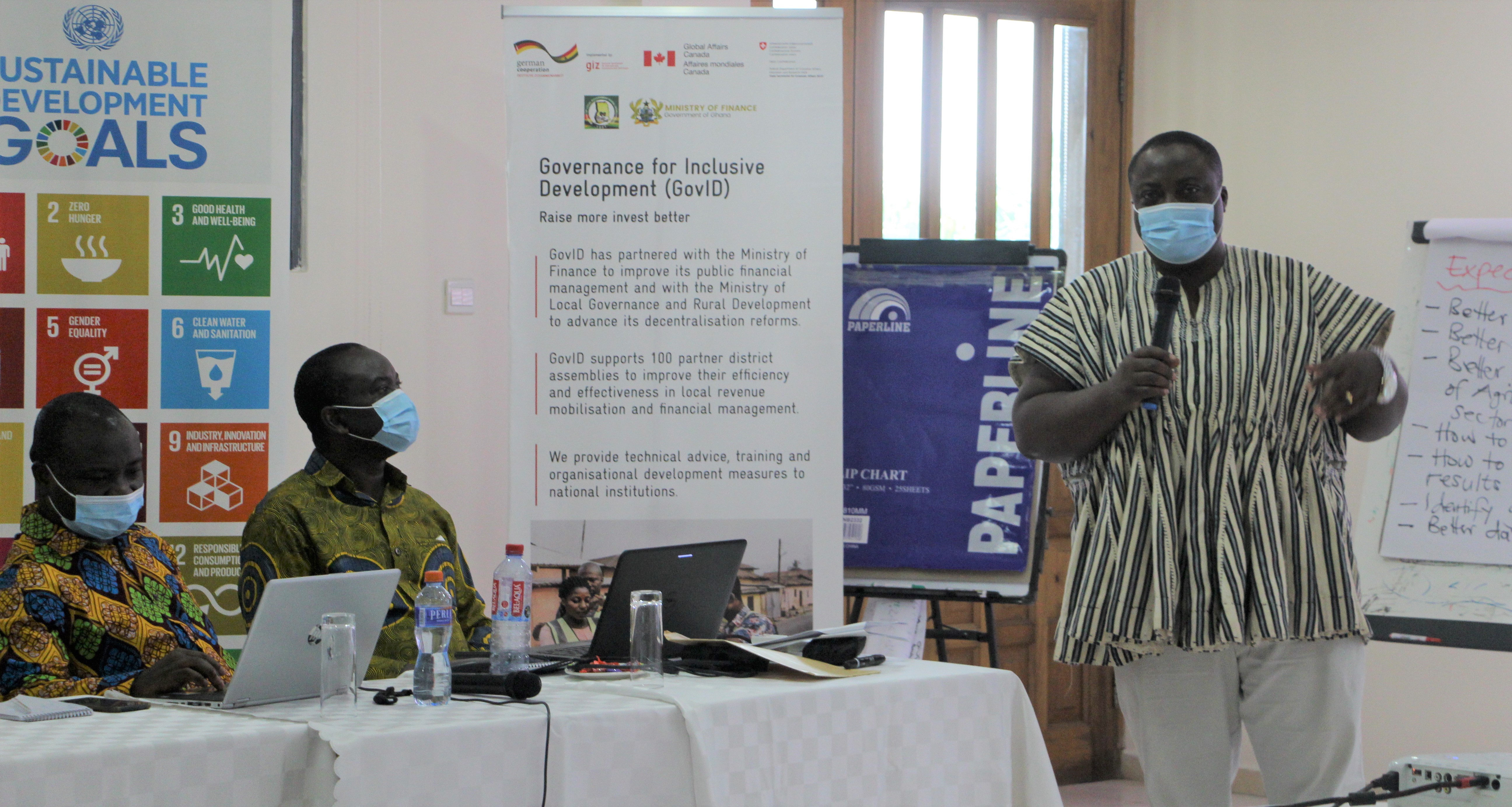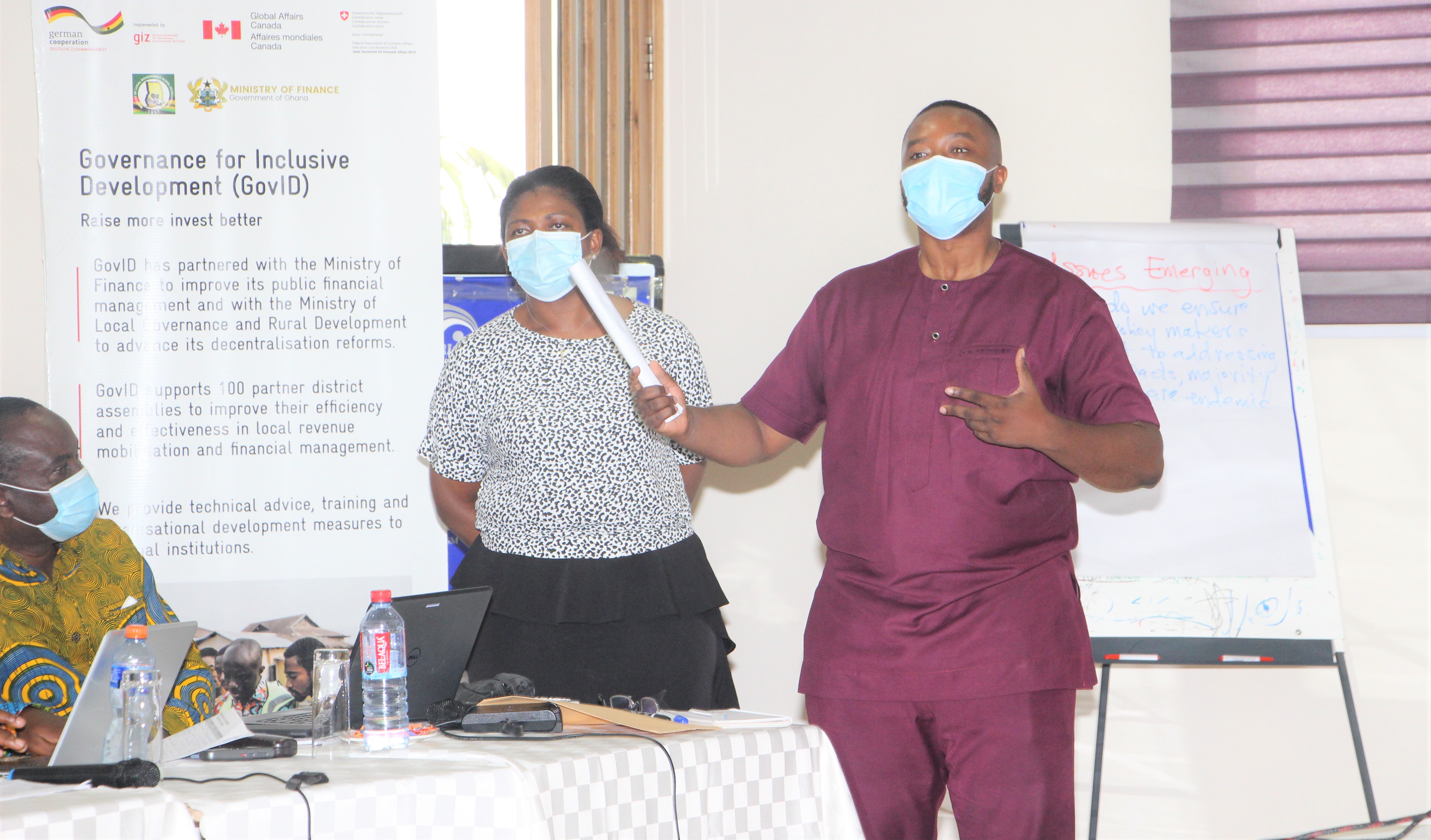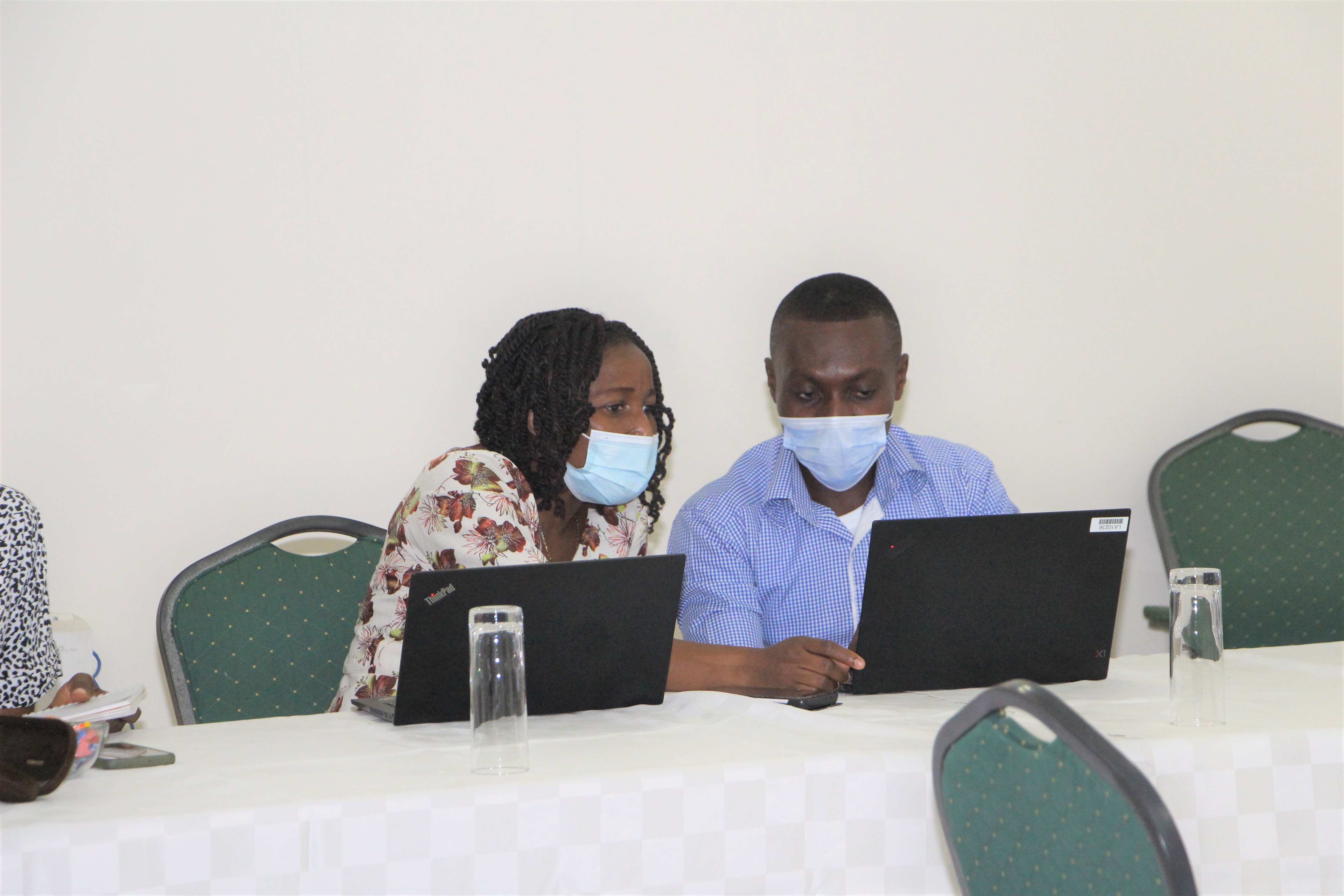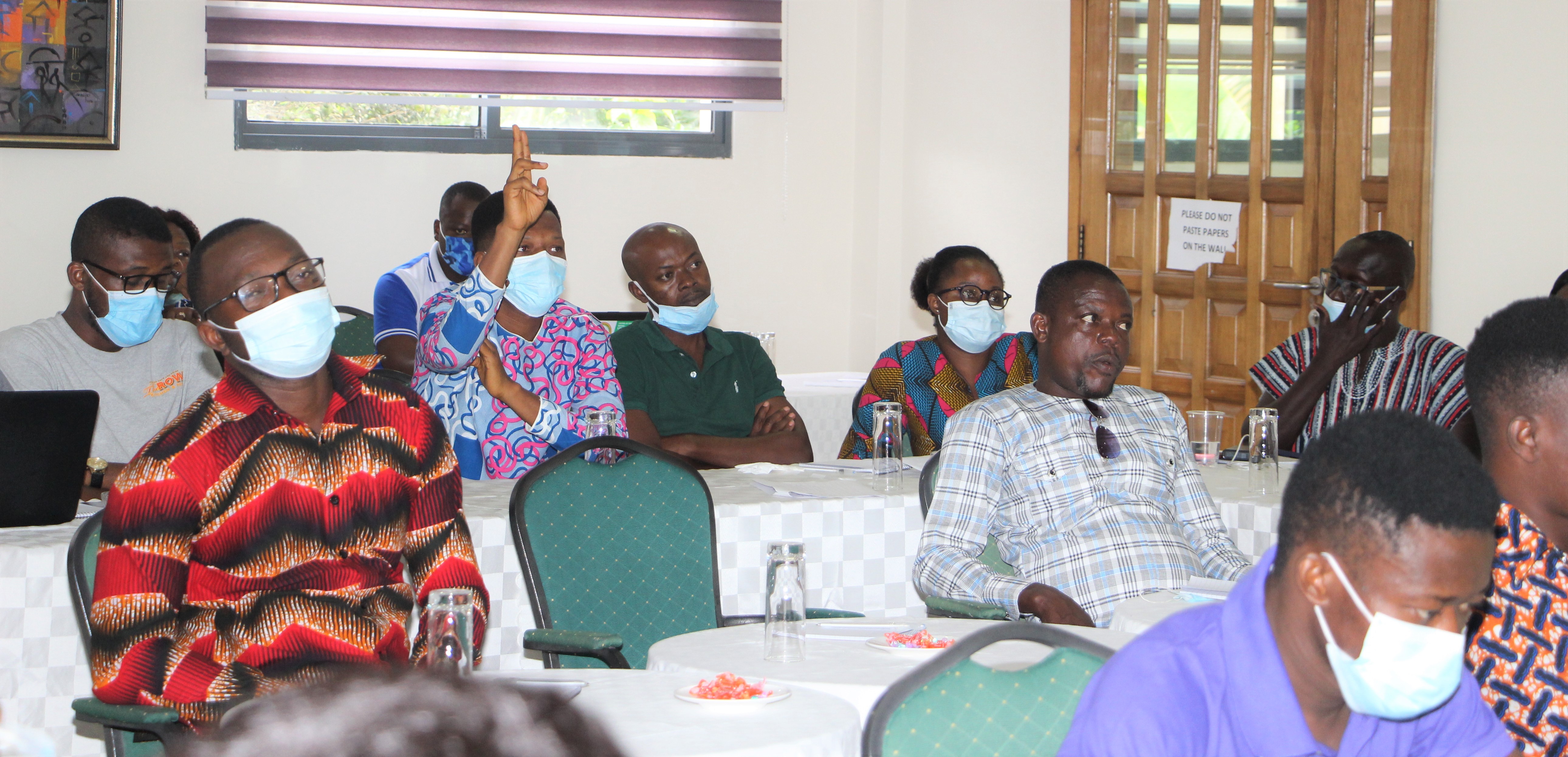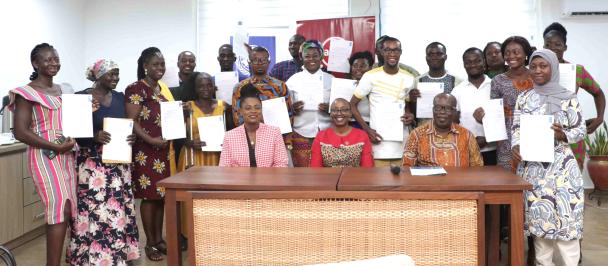Ms. Praise Nutakor, Head of Communications at UNDP Ghana facilitating a session at the Journalists training. Photos: Ernestina Ocansey/UNDPGhana
The United Nations Development Programme (UNDP) in partnership with the Ghana Statistical Service (GSS) and Deutsche Gesellschaft fir Internationale Zusammenarbeit (GIZ) have trained journalists to equip them with deep understanding of the Ghana COVID-19 Agribusiness Tracker, to facilitate advocacy for policy action. The tracker assessed the impact of the COVID-19 pandemic on agribusinesses in Ghana.
Speaking at the training, Mr. Anthony Krakah, Head of Department, Industrial Statistics and Coordinator of Business Surveys at the Ghana Statistical Service, admonished journalists to be accurate in their reportage, especially when it has to do with statistics, noting that accurate data is critical to policy makers and businesses in their planning.
“In interpreting statistics, there is the need to be cautious and accurate to prevent misinterpretation and misuse of statistics”, Mr. Krakah highlighted.
During a co-facilitation session on writing compelling stories with data, Oswald Felli, the Head of Corporate Communications, Gender & Services of GIZ and Ms. Cynthia Prah, Public Information Officer at the United Nations Information Centre (UNIC) in Accra, encouraged the media to invest a little more time, read more, ask relevant questions, connect with the right sources and make statistical stories human-centred.
Ms. Praise Nutakor, Head of Communications at UNDP Ghana, in taking the journalists through a session on communicating the data from different angles, advised the media to desist from using statistical terminologies and a lot of percentages when writing a story on research findings. She explained that, as much as possible, Journalists, who are the bridge between data producers and policy makers, should present percentages clearly and simply to improve understanding.
“Instead of overwhelming the audience or readers with a lot of numbers, it is important to use only numbers that are necessary to convey the essence of the story angle. Adding visuals and descriptive cues will facilitate the understanding of the content”, Ms. Nutakor stressed.
The training took the journalists through data literacy with focus on basic statistical methods and terminologies. The participants also benefited from a practical demonstration and exercises on communicating statistics using graphics, which was facilitated by Mr. Judah Youfi Nuamah, a Junior Technical Advisor of GIZ in Ghana.
A participant, Ebenezer Sabutey, a Business Journalist from Joy FM noted: “I have learnt so much from this training. I got the understanding that when communicating research results to the audience, there is no need to use terminologies to tell the story. I have to simplify all the terminologies and make my stories detailed and accurate”.
The training brought together online, broadcast and print journalists from various media houses.
Mr. Anthony Krakah, Head of Department, Industrial Statistics and Coordinator of Business Surveys at the Ghana Statistical Service advising the Journalists.
Oswald Felli, the Head of Corporate Communications, Gender & Services of GIZ and Ms. Cynthia Prah, Public Information Officer at the United Nations Information Centre (UNIC) in Accra co-facilitating their session.
With Ms. Praise Nutakor, is Mr. Judah Youfi Nuamah, a Junior Technical Advisor of GIZ in Ghana.
Cross-section of Journalists at the training. 1st on the 2nd roll (left) is Ebenezer Sackitey of Joy FM.

 Locations
Locations